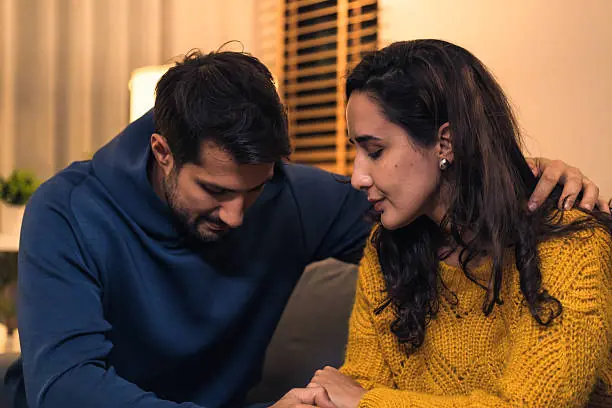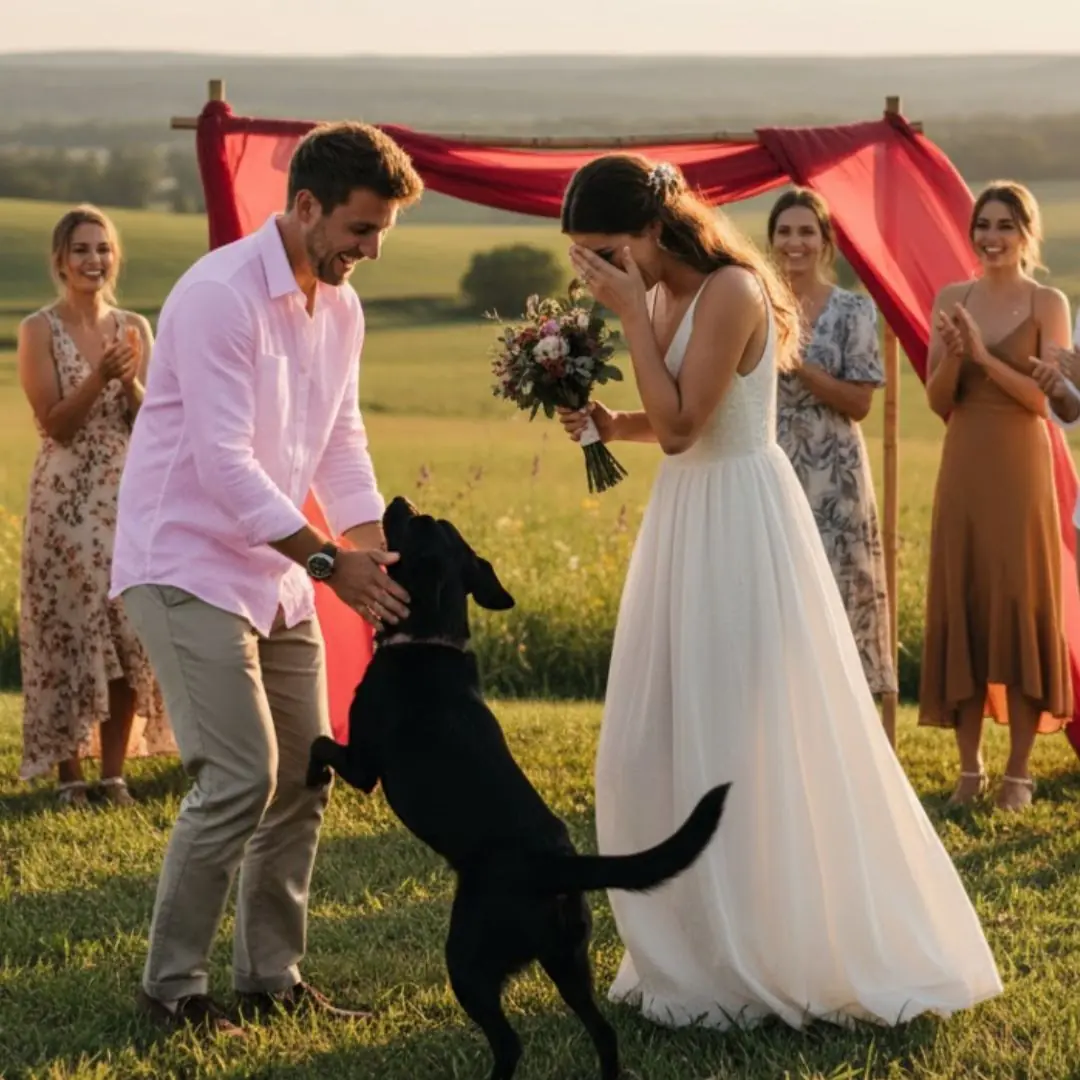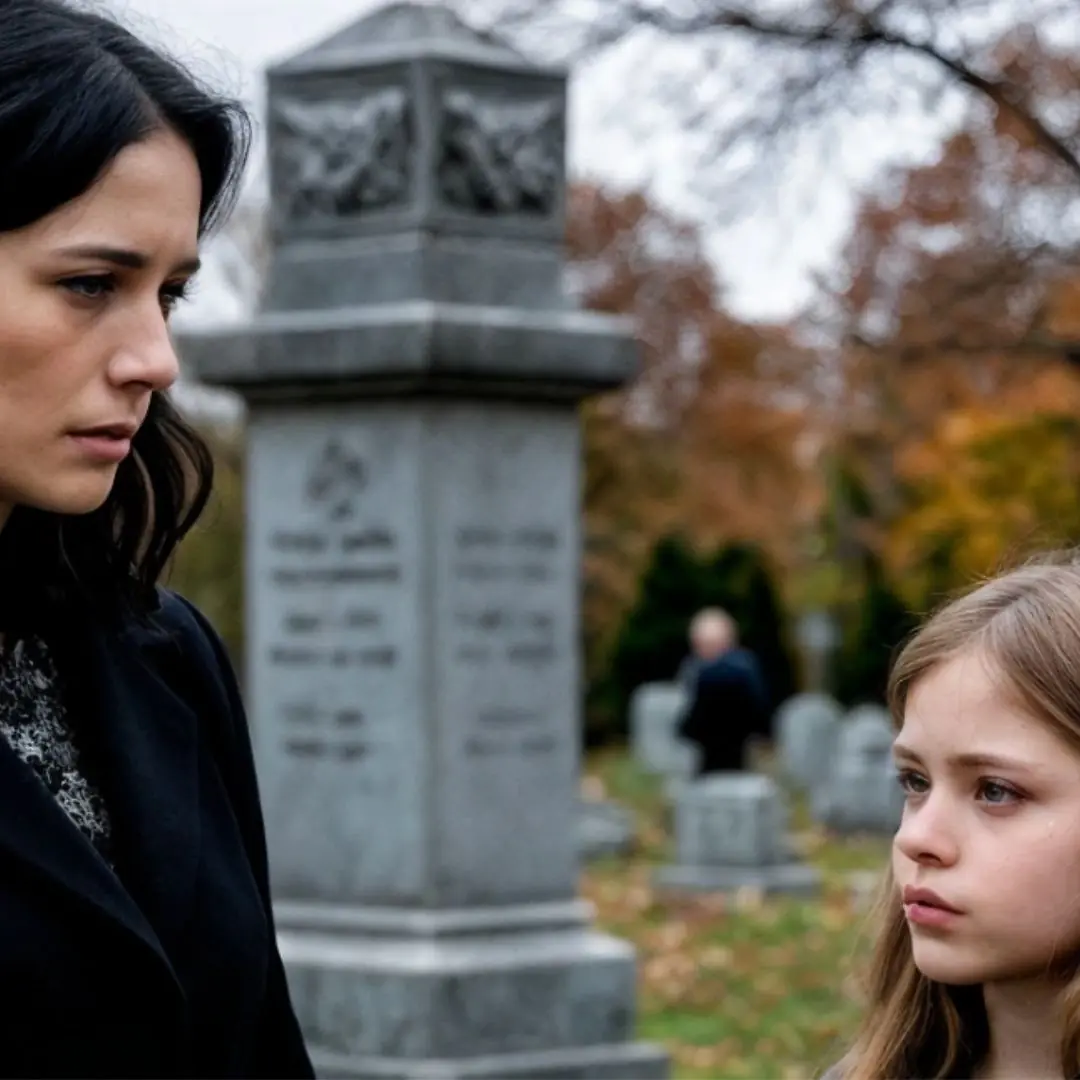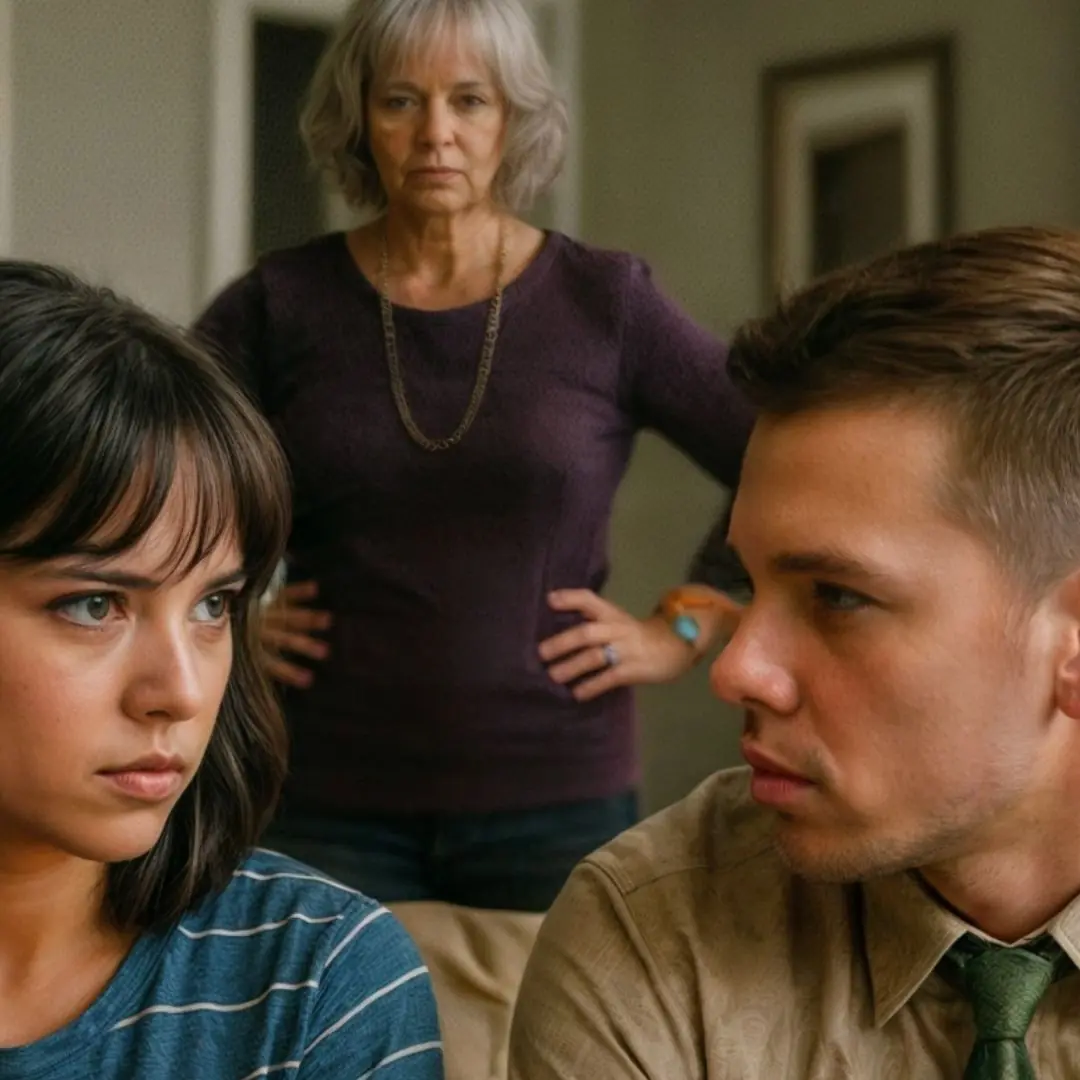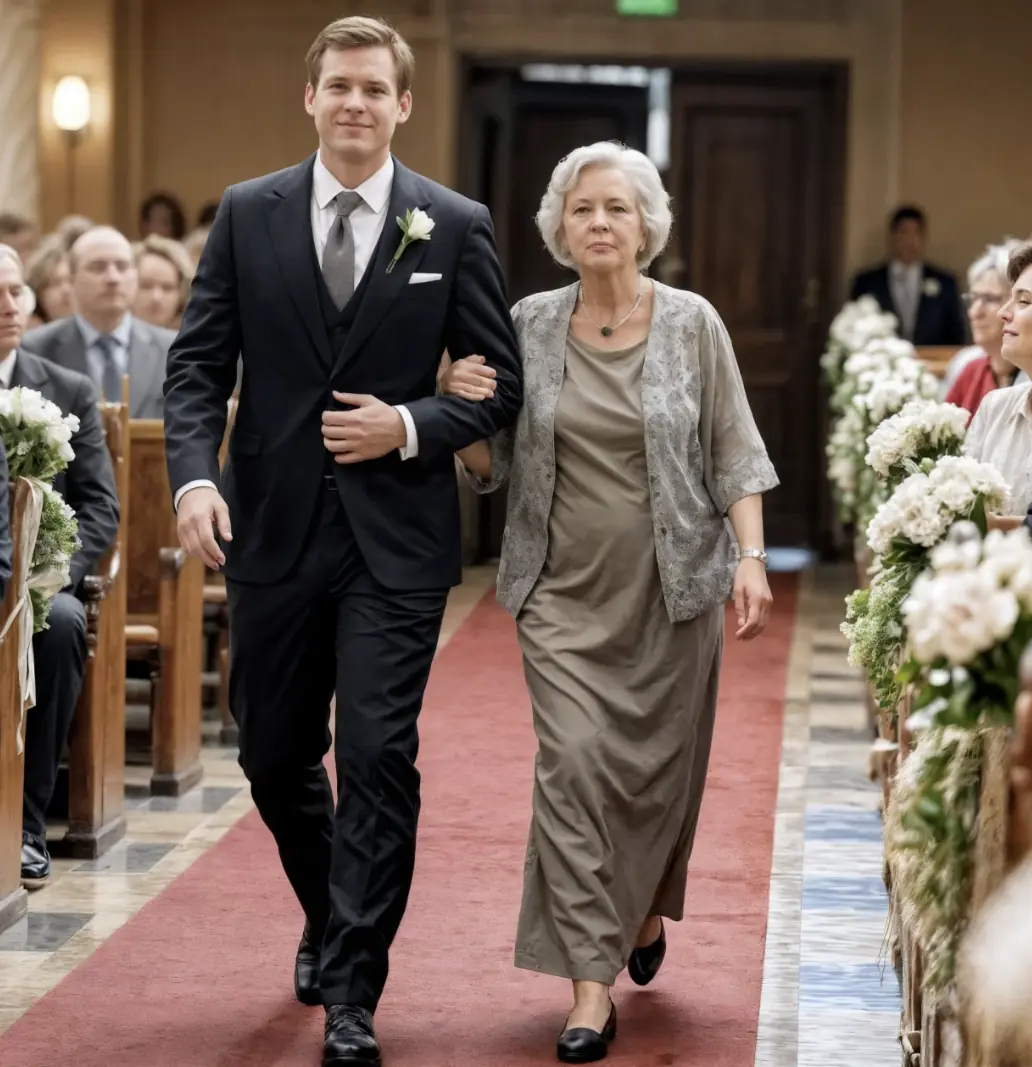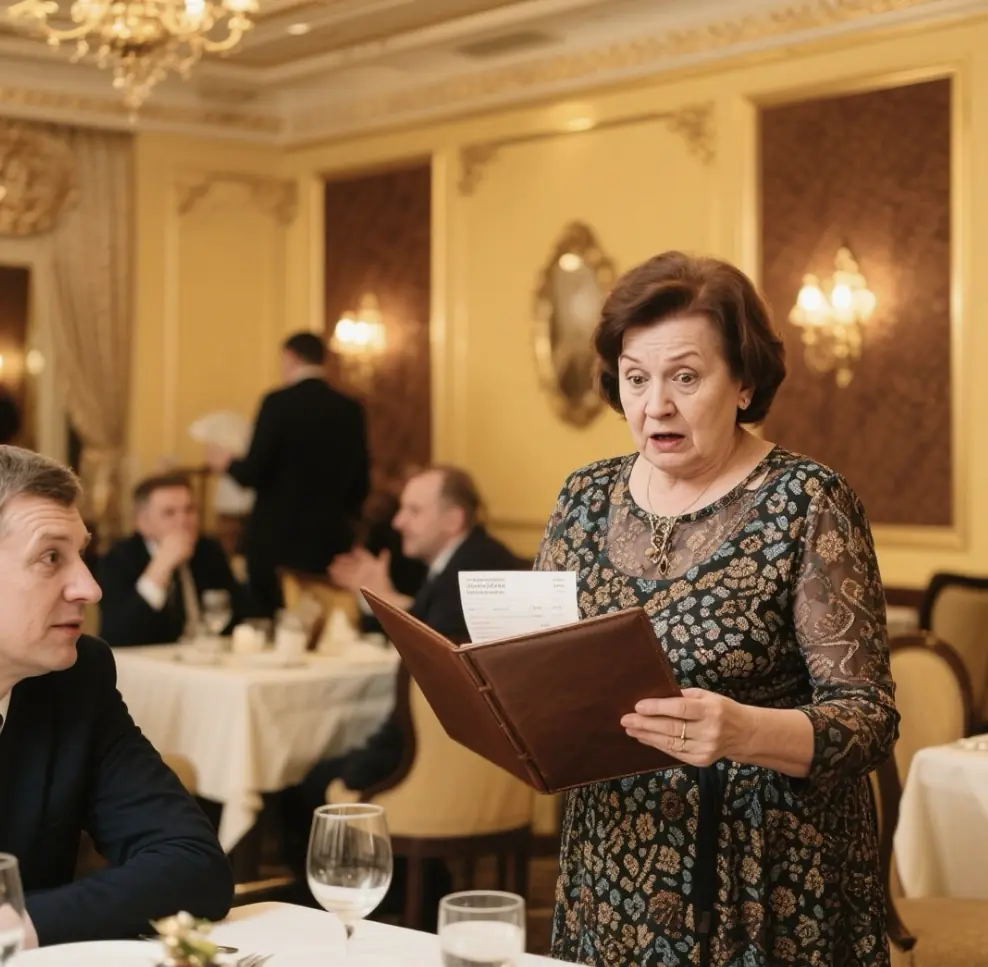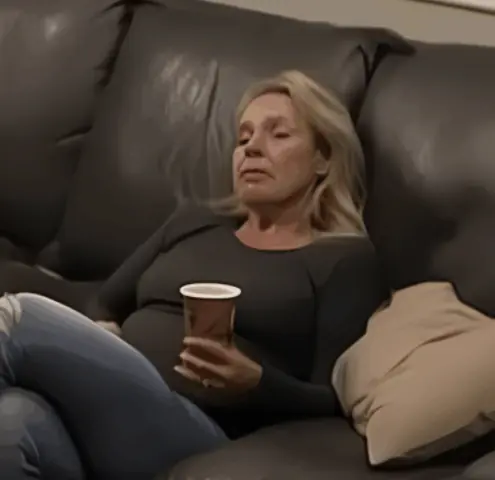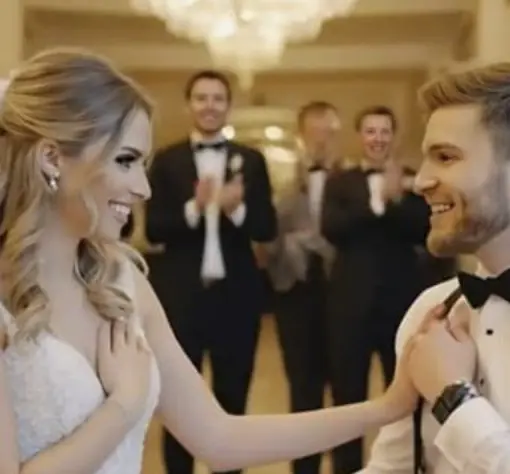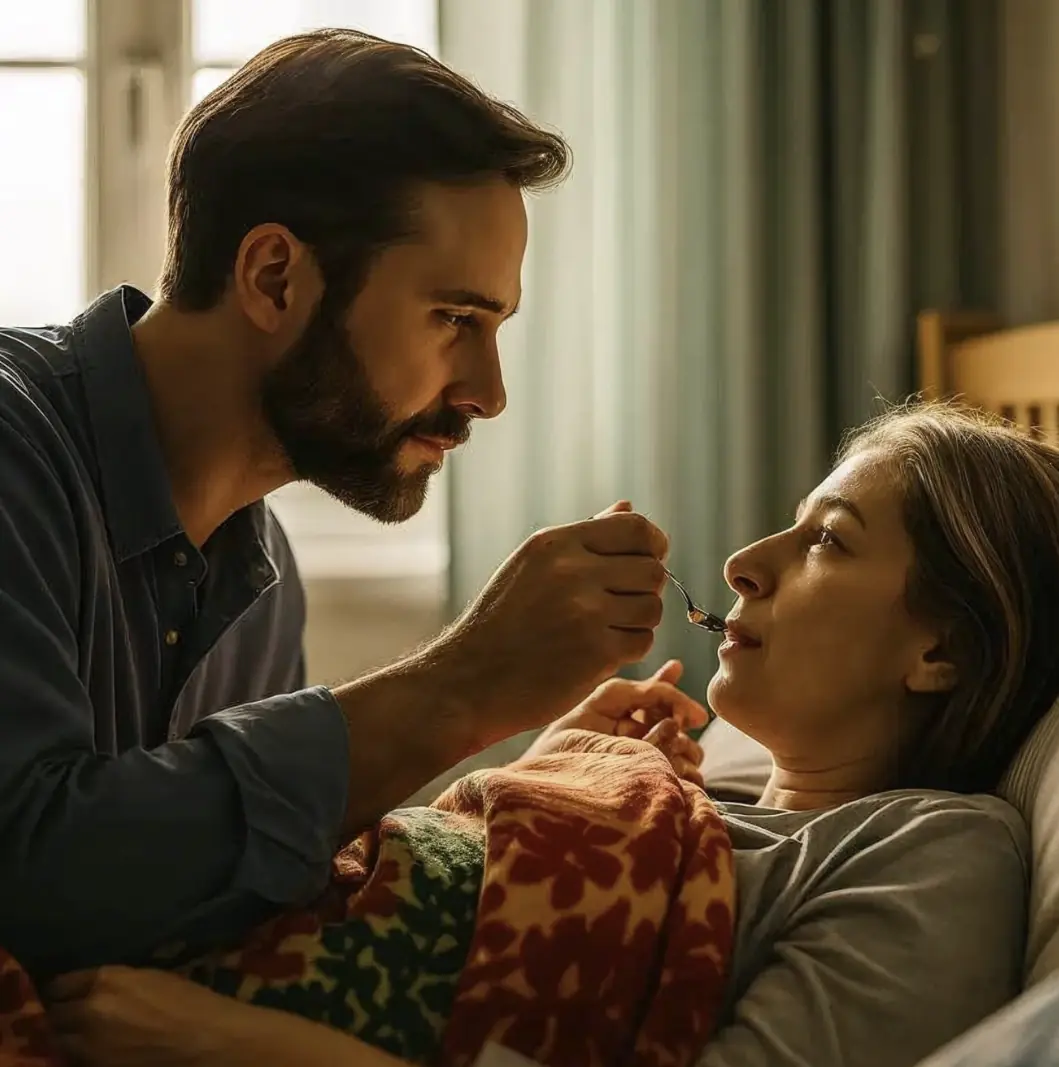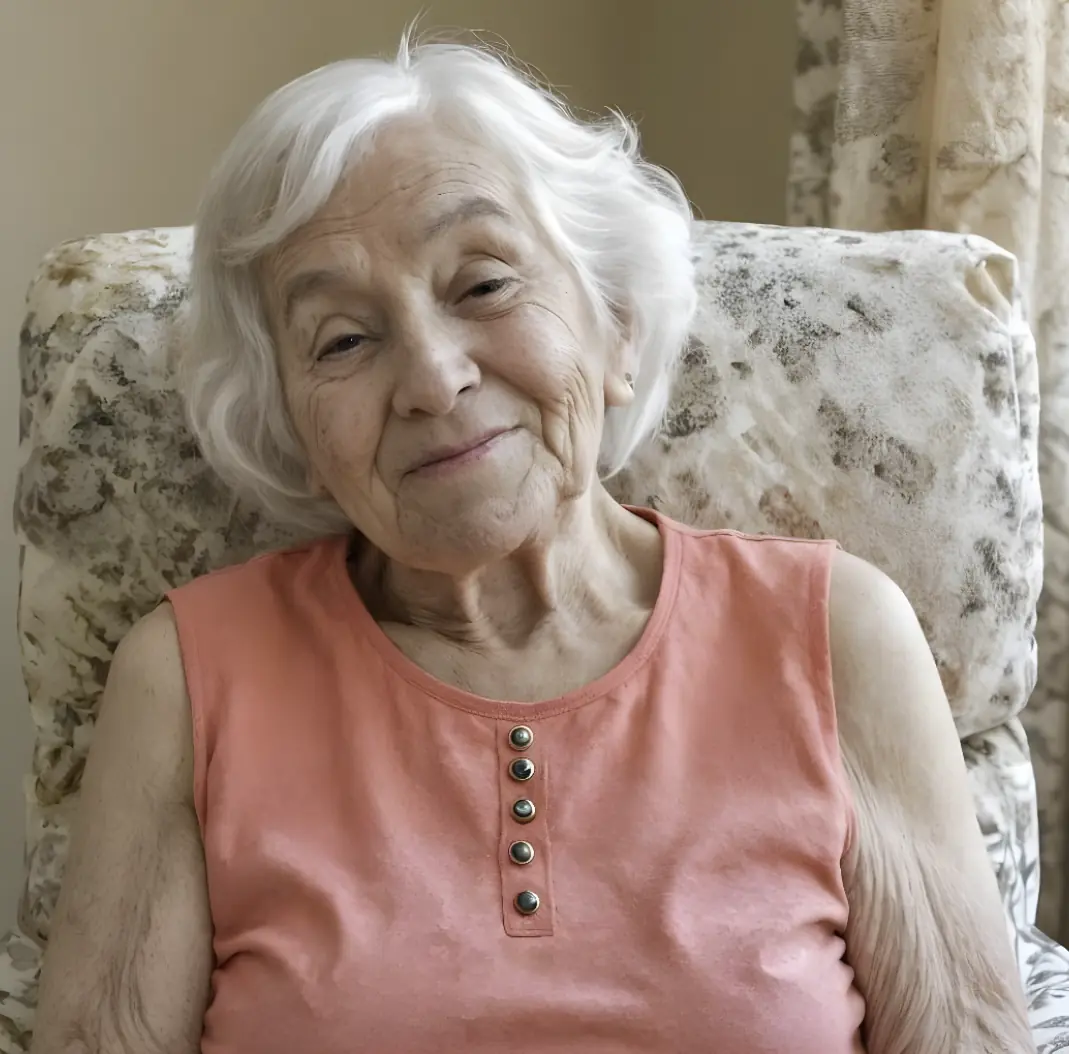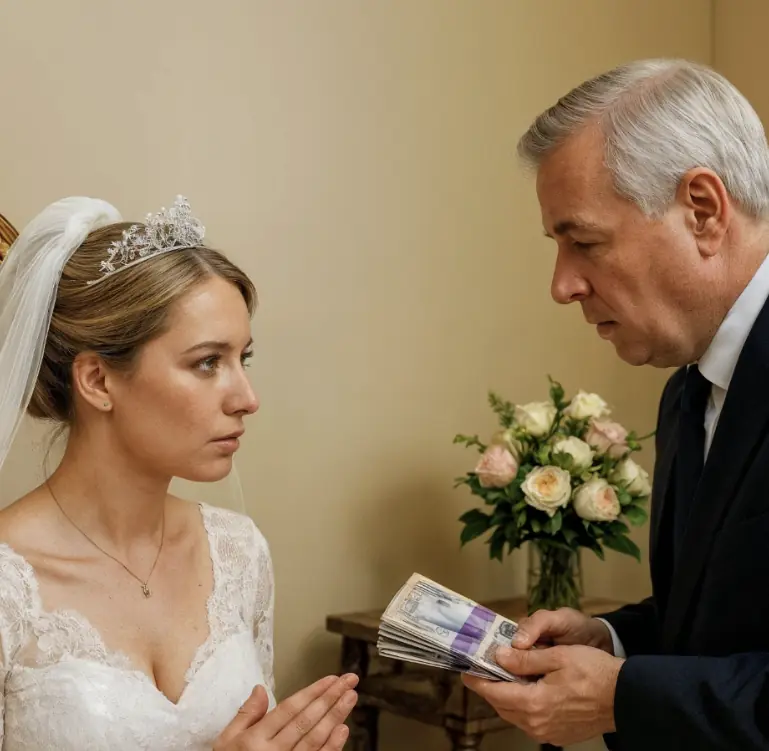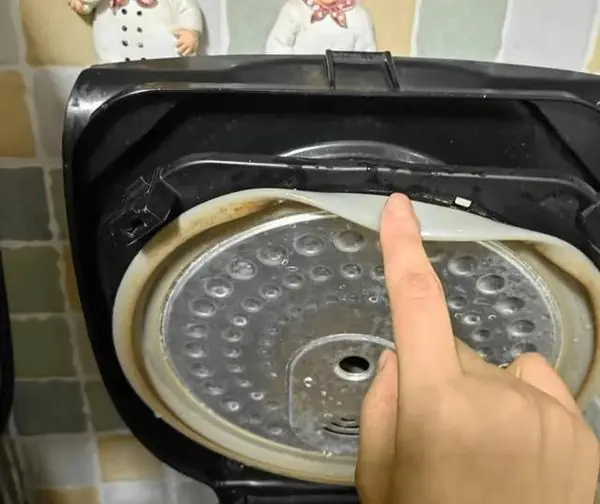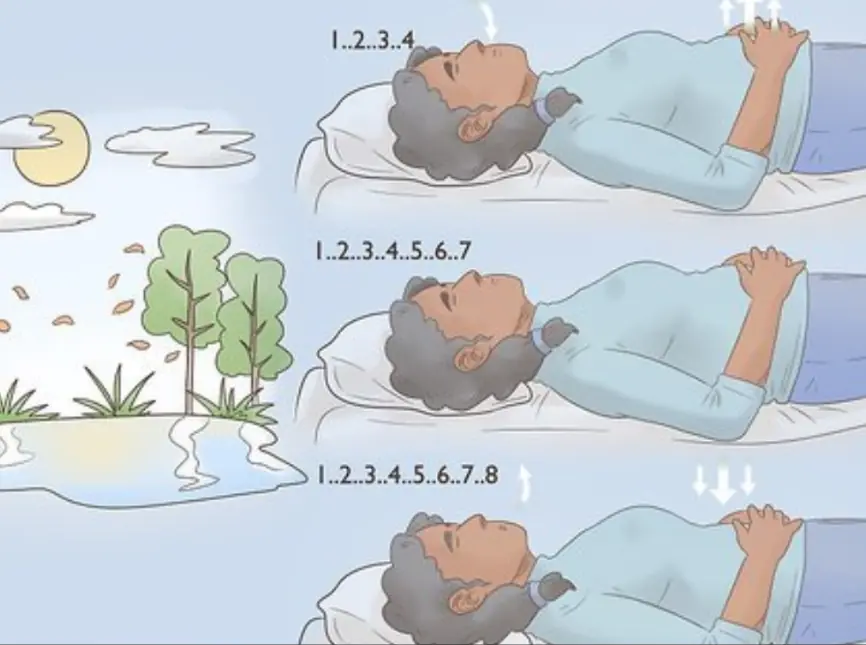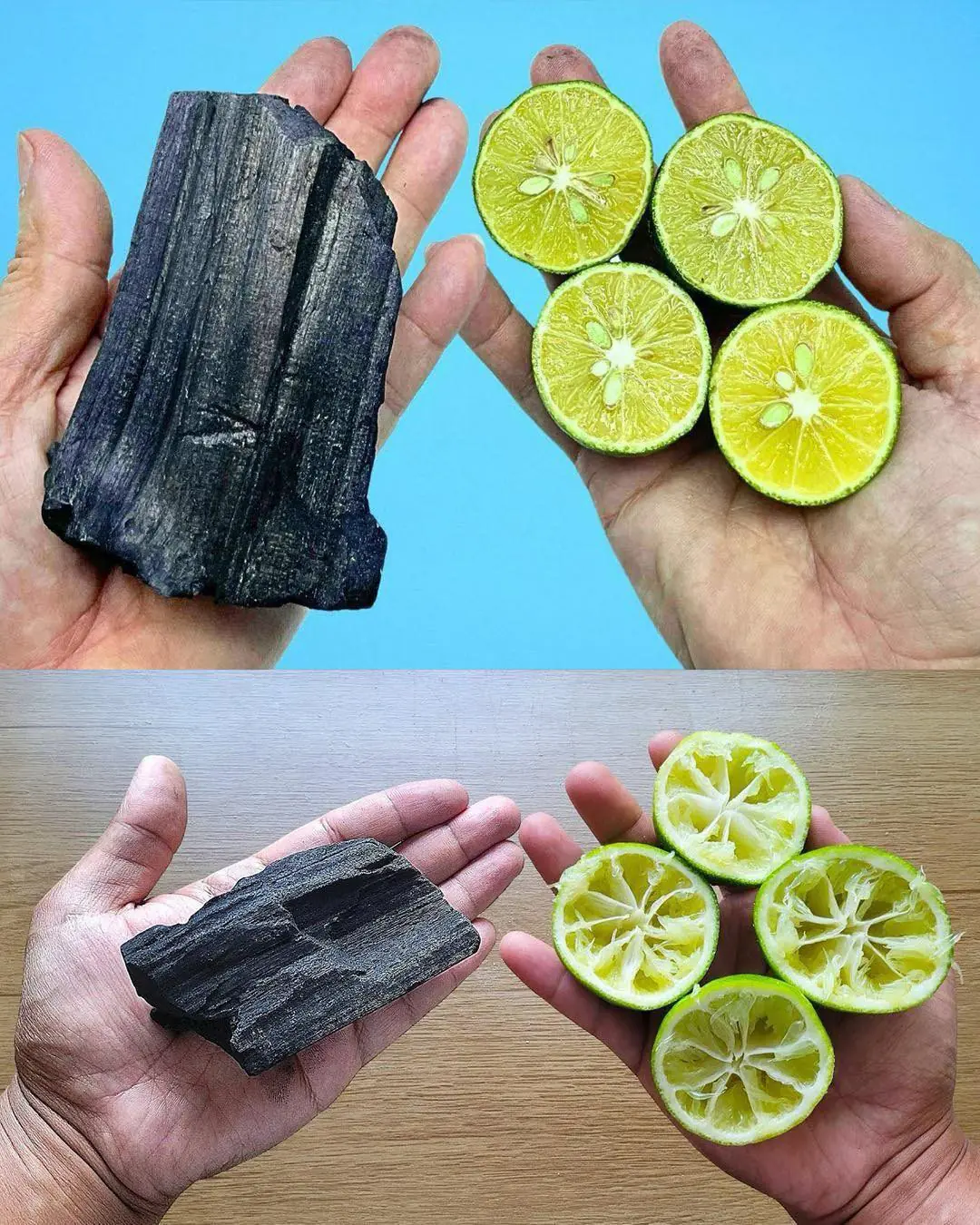I used to believe I knew every corner of our home. After five years of living here, painting the walls with my husband Ethan, rearranging furniture, cleaning, and decorating, I was convinced nothing in this house could surprise me. But all of that changed the afternoon I moved an old bookshelf in the basement.
I had gone downstairs simply to find a storage bin for the winter blankets. The basement was dim as usual, the lights flickering slightly when I switched them on. I pushed aside some boxes and knelt to check behind the shelves when something caught my eye. There was a faint outline on the wall, a thin rectangular border hidden behind layers of dust. It looked too precise to be random.

Curiosity nudged me. I gripped the heavy bookshelf and slid it to the side, coughing as dust filled the air. That’s when I saw it: a small wooden door, almost perfectly blended into the wall. I felt a strange rush of cold air brush across my arms. In five years of living here, I had never seen this door—not once.
I hesitated before pulling the handle. The wood felt slightly warm, as if touched recently. When I pulled, the door creaked open, revealing a narrow staircase descending into darkness.
My chest tightened. I should have closed it right away, pretended I never saw it, walked back upstairs, and gone on with my day. But something about the hidden staircase felt too deliberate, too secretive. I grabbed my phone, turned on the flashlight, and stepped down cautiously.
The stairs were old but sturdy. At the bottom, I found a small room—barely the size of a walk-in closet, but arranged with intention. A wooden desk stood against the far wall. Papers and notes were pinned to a corkboard. A lamp sat on the desk, still plugged in. A notebook lay open, filled with sketches and handwritten thoughts I couldn’t fully understand. A metal box sat in one corner, locked with a simple latch.
All of this was unsettling enough, but then something made my breath catch. Several documents inside the room had Ethan’s last name written on them. Not our names together. Not mine. Just his.
My pulse quickened. Why would there be old papers with Ethan’s surname in a hidden room he had never mentioned? And why did this space feel lived in, as if someone had used it not too long ago?
I stepped back slowly, my mind racing. I left the room, climbed the stairs, closed the small door, and dragged the bookshelf back in front of it. I didn’t feel ready to face whatever the truth might be. For the rest of the day, I went through motions automatically—dinner, laundry, tidying—while my mind replayed the scene over and over.
When Ethan got home that evening, I didn’t say anything at first. I watched him move around the kitchen, listening to him talk about his day, and all the while I kept seeing that hidden room in my mind. The contrast between the man I knew and the secret I had found beneath our home made everything feel off-balance.
The next morning, after a long night of restless thinking, I finally spoke. I told him I had found something in the basement. He froze mid-step, turning toward me with a careful expression that didn’t match his usual calm.
“What did you find?” he asked, his voice steady but his eyes wary.
“A door,” I said. “A hidden one behind the bookshelf.”
His face tightened. “There’s no hidden door down there.”
“There is,” I insisted. “And behind it, there’s a room. A very old room. And there are papers in it with your last name.”
He stared at me for several seconds with an expression I had never seen before—something between worry and frustration. Then he said quietly, “You shouldn’t have gone in there.”
The tone of his voice sent a chill through me. “Why not?” I demanded. “What is that room, Ethan? And why is your last name on documents in it?”
He looked away, as if searching for an answer he didn’t want to say. “It’s not our room,” he said finally. “Just trust me.”
“Not our room?” I repeated. “It’s inside our house. How can it not be ours?”
“I can’t explain right now,” he said. “Please just leave it alone.”
His reaction only deepened my confusion. This wasn’t just about an old storage room. He was hiding something—something big.
When he left for work that day, I returned to the basement. I moved the shelf aside, opened the door, and descended the staircase again. This time, instead of feeling afraid, I felt determined.
I sat at the desk and opened the notebook. The handwriting was neat and emotional, filled with thoughts about wanting space, wanting to escape expectations, wanting to find one’s own path. None of it mentioned Ethan directly, but the voice felt young—struggling, searching.

Then I opened the metal box. Inside were letters addressed to someone with Ethan’s surname, legal papers involving a family I had never heard of, and an old photograph. The photograph made my heart thud painfully. It showed a teenage boy sitting on the front steps of our house—but the house looked newer, freshly painted, without the renovations we had done.
The boy had Ethan’s eyes, Ethan’s jawline, but he wasn’t Ethan.
On the back of the photograph was a date decades earlier than when we bought the house.
Realization hit me like a wave.
This house once belonged to Ethan’s family.
He had told me it didn’t.
He had told me the previous owners were strangers.
So why had he lied?
I flipped through more papers, my hands shaking, until I found a journal entry that made my breath catch:
“If anyone finds this room, ask Ethan to explain. He knows why I left.”
Left.
Not something worse.
Just left.
I closed the journal, pressing my fingers to my temples. Every story Ethan had ever told me, every detail he had chosen to share—or chosen not to—suddenly felt incomplete. I needed the truth.
When Ethan returned home that evening, he knew instantly that I had gone back.
“You opened the box,” he said softly.
“Yes. And now I need answers.”
He sat down heavily on the couch, rubbing his palms against his knees. At first, he didn’t say a word. Then he exhaled slowly and looked at me with a mix of regret and vulnerability.
“He was my brother.”
I stared at him. Ethan had always told me he was an only child.
“I’m sorry,” he continued. “I should’ve told you years ago. But it wasn’t my story to share.”
His voice was steady but filled with emotion. He explained that his brother had once lived in this very house. The small secret room in the basement had been his sanctuary—a place where he could express things he didn’t feel comfortable saying aloud. The journal entries, the drawings, the letters—they were all pieces of someone who needed space, not judgment.
Ethan explained that when we bought the house, he recognized it immediately but pretended not to. His parents had asked him not to tell anyone about the past, especially about his brother’s struggles and the pressure the family had been under at the time.

“He chose to step away from everything,” Ethan said softly. “He wanted a fresh start. My parents wanted privacy, so they made me promise not to tell anyone about him unless he chose to come back.”
I sat down beside him, still processing. I wasn’t hurt because of the secret itself—I was hurt because he had carried it alone. All those years, he had walked through this house remembering someone I never knew existed.
“Why didn’t you at least tell me you had a brother?” I asked quietly.
“I was afraid,” he admitted. “Afraid it would open doors to questions I wasn’t allowed to answer. Afraid it would change how you saw my family. Afraid it would make you feel like our life was built on half-truths.”
I reached for his hand. “Ethan, I don’t care about perfection. I care about honesty.”
He nodded, his eyes glossy. “I’m sorry. Truly. I never meant to shut you out. This was the one part of my life I didn’t know how to explain.”
We sat together for a long time, holding hands, the weight of years of silence slowly lifting. I realized something important: secrets don’t always come from bad intentions. Sometimes they come from old promises, unhealed memories, or fear of judgment.
The hidden room in the basement wasn’t a sign of betrayal. It was a reminder that people carry histories deeper than we can see. It was a piece of Ethan’s past he was trying to protect, not hide from me.
We didn’t empty the room or cover it up. Instead, we cleaned it, brought a new lamp, and kept the notebook exactly where it was. It became a symbol of compassion rather than mystery—a space belonging to someone still finding his path.
And for the first time, I understood that love isn’t just about knowing everything. It’s about understanding the parts that take time to reveal themselves.
